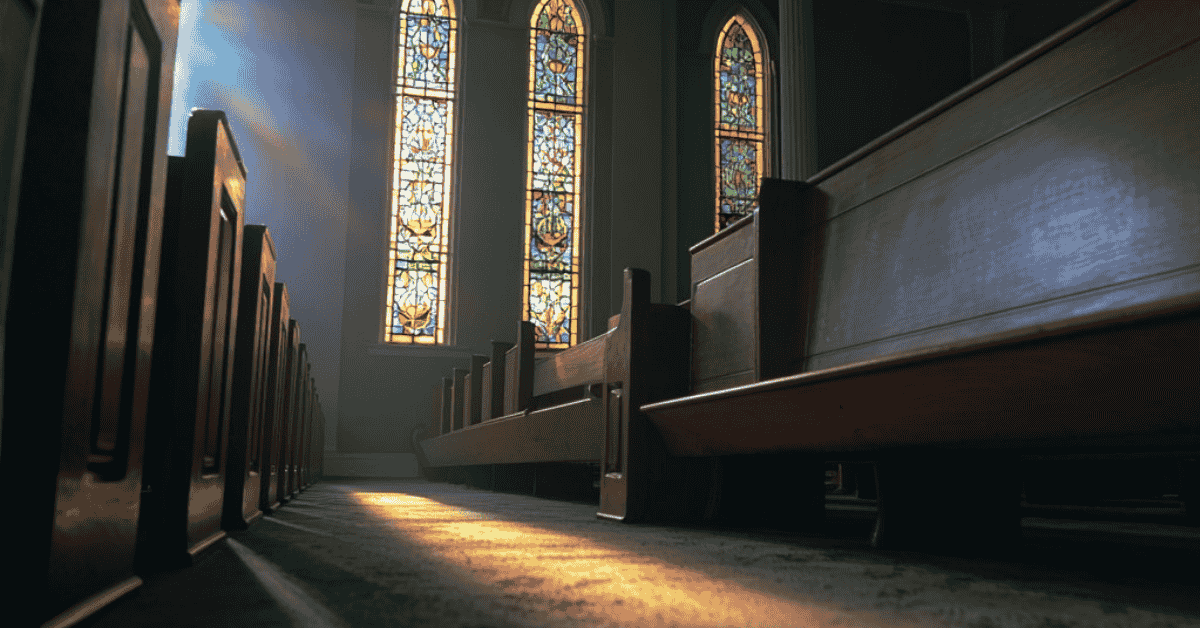Your Pastor Wasn’t Just ‘Strict’ — What Happened Was Spiritual Abuse
I used to think I was just difficult.
Too sensitive. Too rebellious. Too emotional. That’s what they said, over and over, every time I flinched during a sermon, questioned a verse, or asked why God’s love felt more like fear. I didn’t realize it at the time, but I wasn’t a problem—I was a target.
A target for something that hid behind Bible verses and a man in a suit.
It’s called spiritual abuse.
And for many of us raised in Southern Baptist churches, it wasn’t rare. It was the air we breathed.
When “Strict” Is the Mask Spiritual Abuse Wears
“Strict but godly.” That’s how people described him.
The pastor who yelled from the pulpit. The one who humiliated teenagers for kissing. The one who made you confess your “lustful thoughts” in front of a room full of strangers. The one who told women they were responsible for men’s purity.
Everyone praised his passion. His fire. His conviction.
No one asked about the fear in our eyes.
But let’s call it what it was. That wasn’t conviction. It was control. And control, when it’s spiritual in nature and used to manipulate, is abuse—not leadership.
You might’ve been told it was “for your own good.” You might’ve believed it for years. But that doesn’t make it right. It just makes it harder to see.
Spiritual abuse thrives in churches that worship authority. Especially ones that teach obedience over discernment and submission over safety.
In fact, many survivors of Southern Baptist church abuse now realize the first red flags weren’t sexual—they were spiritual.
Learn how spiritual abuse fuels wider church abuse →
What Is Spiritual Abuse in a Church?
It doesn’t leave visible scars. But it burrows deep—into your thoughts, your worth, your sense of God.
Spiritual abuse happens when someone uses faith or religious authority to control, harm, or silence you. It can come from a pastor, elder, ministry leader, even a parent. And it often looks like righteousness at first.
You might have experienced spiritual abuse if:
- You were told your trauma was the result of “unconfessed sin”
- You were punished for asking questions
- You were isolated from outside relationships in the name of “purity”
- You were manipulated using hell, shame, or scripture
- You were forced to confess to things that weren’t sins—just human
For many of us, spiritual abuse didn’t start in one moment. It built slowly. Sermon by sermon. Prayer circle by prayer circle. Discipline that felt more like domination. Conviction that sounded like condemnation.
The confusing part is that some of it felt holy. Because that’s how it was packaged.
“Was My Pastor Abusive or Just Strict?”
It’s a haunting question. And one that keeps survivors quiet for decades.
He didn’t touch me.
He never raised a hand.
He was just hard on us because he cared.
Sound familiar?
That’s what spiritual abusers count on. They don’t need to break bones—just beliefs. If they can convince you that obedience means silence, they’ve already won.
So let’s ask it differently:
- Did you feel afraid of questioning him?
- Were you taught that disagreeing meant dishonoring God?
- Did you learn that suffering meant spiritual growth—so long as you stayed quiet?
Strictness is about discipline. Spiritual abuse is about control. One corrects behavior. The other crushes souls.
And when it happens inside the Southern Baptist tradition—where the pastor is often seen as the ultimate authority under God—it becomes even harder to name. Let alone escape.
Spiritual Abuse Is Often the Gateway to Sexual Abuse
Not all spiritual abuse leads to sexual abuse. But almost every church-based sexual abuse scandal started with unchecked spiritual power.
Because predators don’t walk into well-lit rooms where questions are welcome. They hide in systems that demand silence, shame doubt, and protect authority at all costs.
Think about it:
- Who’s more likely to be believed—the teenage girl with questions or the respected male pastor?
- In a church that teaches “submission,” who holds the power to say what is or isn’t abuse?
- If you were taught to obey without question, what happens when the pastor crosses a line?
The SBC sex abuse crisis didn’t erupt overnight. It was built, brick by brick, by decades of spiritual control.
Read how the SBC’s secret abuser list changed everything →
Spiritual abuse is the soil. Sexual abuse is the rotten fruit.
And even survivors of sexual trauma within the church often say the spiritual manipulation hurt worse. Because it twisted their faith into a weapon.
What If You Can’t Tell the Difference Anymore?
This is one of the cruelest effects of spiritual abuse: it steals your ability to trust yourself.
You were told:
- Your emotions were sinful.
- Your doubts were dangerous.
- Your conscience was flawed.
So when you left that church, you didn’t just walk away from a building—you walked away from your ability to believe yourself.
That’s not an accident. That’s how spiritual abuse works. It isolates. It shames. It makes you feel like leaving is betraying God, even when staying is killing your spirit.
Let me say this clearly:
If you’re wrestling with guilt for questioning how you were treated…
If you feel like your memories of church don’t match what everyone else says it was…
If a part of you still wonders if you’re just being dramatic…
You’re not. You’re waking up.
Yes — There Are Legal Options for Southern Baptist Spiritual Abuse Survivors
Spiritual abuse isn’t just a “church issue.” It can have real legal consequences, especially when it overlaps with:
- Sexual misconduct or clergy abuse
- Negligent hiring by churches or ministries
- Emotional distress or trauma caused by coercive church leadership
- Failure to report known abusers
Arkansas law, like most states, doesn’t use the term “spiritual abuse” explicitly. But that doesn’t mean what happened to you isn’t actionable.
A survivor-informed attorney can help you explore civil claims for damages, identify patterns of misconduct, and hold institutions accountable.
You don’t need to have been assaulted to deserve justice. You don’t even need to have “proof.” If your church harmed you emotionally, psychologically, or by silencing or isolating you in the name of spiritual authority, it matters.
And you’re not alone. There are people ready to listen—without judgment, shame, or scripture used as a weapon.
But Will Anyone Believe Me?
This question haunts most survivors. Especially if you were told for years that questioning a pastor was equal to “touching God’s anointed.”
It takes enormous courage to tell the truth when everything in your past screams at you to stay quiet.
But here’s the truth:
- More survivors are speaking out than ever before.
- More journalists, lawyers, and advocates believe you.
- More churches are being exposed for what they really are—systems of unchecked control.
So yes, someone will believe you. Even if your old church doesn’t. Even if your family won’t.
Start with someone who knows what spiritual abuse looks like and what healing can sound like.
Reach out for survivor-centered support →
You Don’t Owe Loyalty to a Lie
There’s a particular kind of grief that comes from realizing the people who claimed to protect you were the ones who hurt you most.
It doesn’t come with casseroles or altar calls. It comes with doubt, rage, guilt, and a shattered understanding of who God is.
But here’s what I’ve learned:
You don’t have to stay silent to be faithful.
You don’t have to protect your abuser to protect your faith.
You don’t owe loyalty to a lie—no matter how many Bible verses it was wrapped in.
If you were spiritually abused by a Southern Baptist pastor, church, or institution, your story matters. You deserve truth. You deserve justice. And you deserve to reclaim your voice, one brave word at a time.
Because what happened wasn’t “just strict.” It was abuse. And it ends when we start calling it that.



